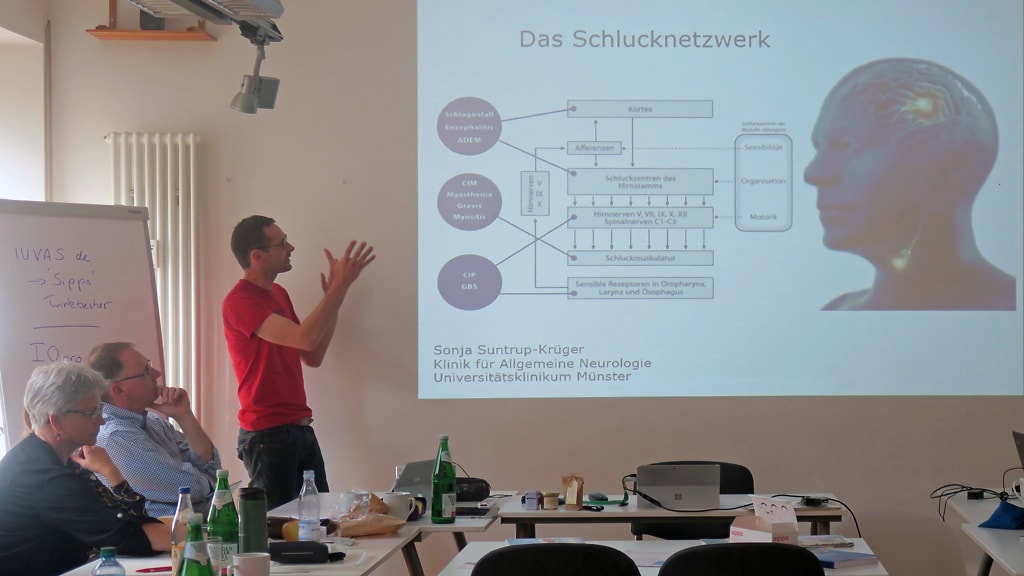06 Apr 2023 | Daniela Jakobsen
Two new definitions of dysphagia


Dysphagia means 'swallowing disorder'. It's as simple as that. Really?
Experts have taken on the challenge of defining dysphagia more closely, not only in Denmark, but also internationally. Until last year there was no uniform international definition of what dysphagia really is.
A precise clarification of the term has implications not only in the field of research, but also in terms of health policy. Especially when facing the fact that dysphagia of any aetiology is still often overlooked in those affected and therefore not treated appropriately.
Definition of the Danish Society of Dysphagia
The Danish Society for Dysphagia has now found a definition in a Delphi procedure with participants from various professional groups:
Dysfagi forstås bredt som funktionsnedsættelser, der enten forhindrer eller begrænser indtagelsen af føde og væsker, og som gør synkning risikabel, ineffektiv, ubehagelig eller som påvirker livskvaliteten.(1)
'Dysphagia is commonly understood as an impairment that either prevents or restricts the intake of food and liquid and makes swallowing risky, ineffective, unpleasant or impairs quality of life.'
(a free translation by Daniela Jakobsen)
International definition
The international research group led by Reneé Speyer established this definition in 2022:
Dysphagia is a symptom or a collection of symptoms of one or more underlying anatomical abnormalities, or impairments and disorders in cognitive, sensory and motor acts involved with transferring a substance (including food and liquids) from the mouth - or nasal cavity - to the stomach, possibly resulting in but not limited to: reduced efficiency and safety of swallowing, failure to maintain hydration and nutrition, risk of choking and aspiration leading to pulmonary complications, and reduced quality of life.(2)
My personal conclusion
Both definitions include the limited quality of life that may be caused by dysphagia. In my opinion this paves the way to supporting persons suffering from dysphagia in dealing with their loss of activity and participation.
I appreciate the reference to problems related to cognition and sensorimotor function in the international definition. This opens and broadens perspectives that have been described in F.O.T.T.® as the preoral phase for some decades. It is essential for me that other 'substances' than food and liquid are mentioned.
Both versions put two important aspects on the agenda: the respiratory tract and nutrition may be at particular risk.
I would be interested to know what you think about these definitions and to what extent they reflect your everyday working reality. What could you use these definitions for?
| (1) | Anne Højager Nielsen, Signe Janum Eskildsen, Janne Danielsen, Peter Haastrup, Anne Bek Jellinghof, Johannes Riis, Anne Lund Krarup, Hanna Rahbek Mortensen, Bahareh Bakhshaie Philipsen, Nathalie Rommel & Dorte Melgaard (2022). Defining dysphagia - a modified multi-professional Danish Delphi study, Scandinavian Journal of Gastroenterology. www.tandfonline.com/doi/full/ |
| (2) | Speyer, R.; Cordier, R.; Denman, D.; Windsor, C.; Krisciunas, G.P.; Smithard, D.; Heijnen, B.J. Development of Two Patient Self-Reported Measures on Functional Health Status (FOD) and Health-Related Quality of Life (QOD) in Adults with Oropharyngeal Dysphagia Using the Delphi Technique. J. Clin. Med. 2022, 11, 5920. www.mdpi.com/2077-0383 |





